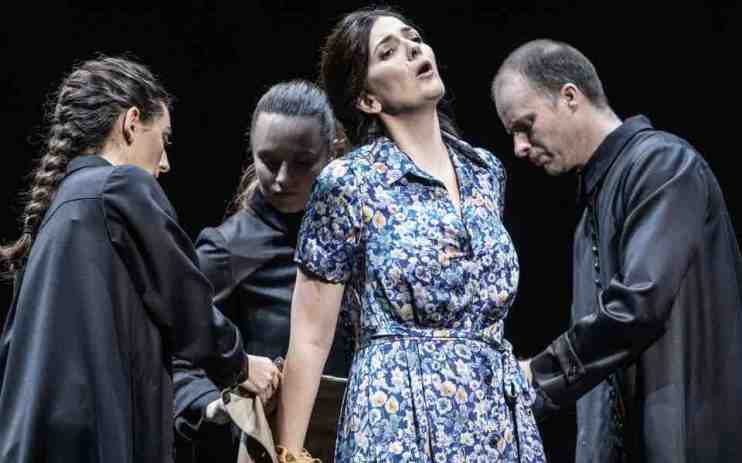Picture A Day Like This at ROH review: Beautiful ad memorable

What does it mean to look for a miracle? Hope, as a uniquely human impulse, is the focus of composer George Benjamin and writer Martin Crimp’s latest operatic endeavour, Picture a day like this. This eagerly anticipated fourth collaboration between Benjamin and Crimp marks a departure from their grander operatic triumphs.
Picture a day like this is an episodic allegory written for a small orchestra, a microcosmic study of one woman’s grief and her quest for a liferestoring miracle. Stepping out from the shadows on stage, a woman stands before the audience clutching a piece of paper. Her child, she explains, has died. But in this mystical world, made real by Crimp’s delicate poetry and Benjamin’s captivating score, she is given the opportunity to restore her child’s life.
To accomplish this, she must find one truly happy person and retrieve a button from their sleeve before nightfall. With a list of likely candidates in hand, she sets out on her quest. From here, Picture a day like this develops episodically, as each seemingly happy person reveals their own pain.
The woman, sung with an exquisite attention to detail by Ema Nikolovska, is omnipresent on stage and is the heart of this production. Her seemingly unconnected interactions with an inconstant lover, a demented artisan, an egocentric composer and a lonely collector, are woven together through Benjamin’s angular and yet deeply emotional score.
Just when the woman begins to lose hope, she is shown the way to Zabelle’s garden, where Crimp’s poetic world shines its brightest. It is here, in the mid-evening light, where the woman may find the answer to her search.
This production, co-directed and designed by Daniel Jeanneteau and Marie-Christine Soma, was first seen at Aix Festival back in July, and received considerable acclaim. Crimp’s ethereal text might at first seem at odds with Benjamin’s unforgiving score, but their finely tuned professional alliance gives the opera an endlessly unfurling gravity.
However, although many aspects of the production are superbly executed, such as Zabelle’s garden, or the artisan’s elaborate button suit, at times it feels overly sparse and unremittingly bleak. The sophistication of the piece is articulated with greater clarity by the ensemble.
At the hands of conductor Corinna Niemeyer, the Royal Opera House orchestra carry this piece well. Baritone John Brancy reprises his role as the artisan and the collector, lending his beautiful voice to the creation of two complex characters.
Likewise, Beate Mordal and Cameron Shahbazi are recast as the lovers. Expertly guided by Benjamin’s music, their vocals perfectly melt together, able to express both warmth and discomfort. Jacquelyn Stucker, a new voice for Zabelle, possesses an impressive soprano, which she utilises with beautiful subtlety. Although not a perfect production, Picture a day like this is undoubtedly another hit for Benjamin and Crimp.
It is a beautiful tale of grief and acceptance, and our capacity for hope. Possessing no definitive emotional resolution, the beauty of the piece lies in its enigmatic terminus. It will leave you pondering its idiosyncrasies for days on end.